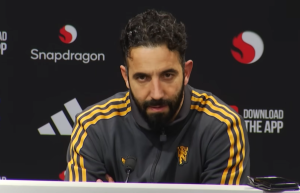The government of Israel was ordered by the Supreme Court on Thursday to cease providing funds to religious schools whose pupils refuse to serve in the military. This decision represents one of the biggest challenges to Prime Minister Benjamin Netanyahu's coalition to date.
To keep his coalition in power, Netanyahu depends on two Ultra-Orthodox parties: Shas and United Torah Judaism. Benny Gantz of the National Unity Party and Defense Minister Yoav Gallant, his wartime allies, have harshly criticized Netanyahu's stance on the subject of ultra-Orthodox conscription.
High Court Ruling Sparks Yeshiva Conscription Controversy
Ariyeh Deri, leader of the Shas party, expressed concern about the actions of the High Court of Justice in a recent statement. "The people of Israel are engaged in a war of existence on several fronts and the High Court of Justice judges did everything tonight to create a fratricidal war as well."
Since the country's foundation, young men enrolled in yeshivas have been excused from required military duty, thereby excluding all Ultra-Orthodox Israelis. However, the exception has long been implemented by sporadic government regulations and has never been codified in a statute that the Supreme Court finds to be fair.
This week, Netanyahu made an attempt to postpone the Supreme Court's deadline for enacting legislation formalizing the exception. The Supreme Court informed the administration that it was unlawful for the government to support yeshivas and exempt their students from conscription after decades of decisions on the issue.
The Supreme Court ruled late on Thursday that the government could no longer send money to yeshivas whose students did not get valid deferments as of April 1.
The head of the United Torah Judaism party, Yitzhak Goldknopf, called the ruling a "disgrace" and cited the Hebrew book, the Torah. "We have no right to exist if the Torah is not followed. We will not back down from our effort to ensure that every Jew has the opportunity to learn the Torah," he said.
Benny Gantz, a retired general who sided with Netanyahu's coalition in a unity government following Hamas's attack on Israel on October 7, applauded the court's ruling and encouraged the government to enact legislation requiring the Haredim to be conscripted, , according to Financial Times.
Read Also: New York Tries Out Gun Detection System in Subway Amid Violence: 'Bring on the Scanners'
High Court Sparks Haredi Military Exemption Debate
Nowadays, the High Court made the obvious decision. The obvious needs to be done by the government, he declared.
The 1948 agreement between David Ben-Gurion, the founder of Israel, and rabbis representing several hundred ultraorthodox households resulted in the exemption for religious students.
As a result, 400 young Haredi men who enrolled in a yeshiva, or religious school, were spared from military duty.
However, the arrangement and the state subsidies for yeshiva students that funded it had already become a source of great frustration for the rest of Jewish Israeli society, even before the war with Hamas. This was because the number of ultraorthodox exempted had skyrocketed, in part due to the Haredi population's rapid growth.
According to the ultra-Orthodox, their generations-old way of life will be threatened by enlisting in the army, and their pious way of life and commitment to keeping Jewish law defend Israel just as much as a powerful military. Religious leaders have promised to oppose any attempt to compel ultra-Orthodox males to enlist in the military and have previously organized large-scale demonstrations against such initiatives.
Shas party chair Aryeh Deri described the court's ruling as "unprecedented bullying of Torah students in the Jewish state."
Netanyahu said that more time is required for negotiations in his petition to the Supreme Court asking for the extension, citing historical evidence that "enlistment without an agreed-upon arrangement actually has the opposite effect," KTLA5 reported.
© 2025 HNGN, All rights reserved. Do not reproduce without permission.








